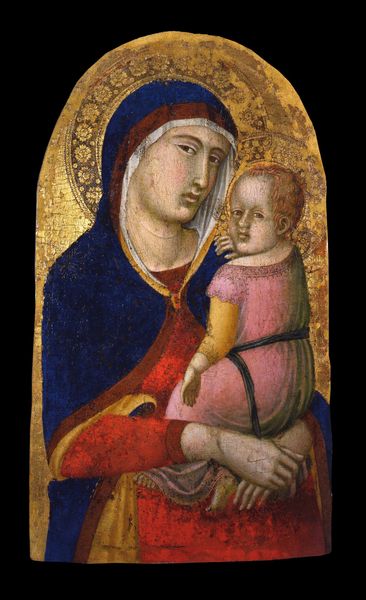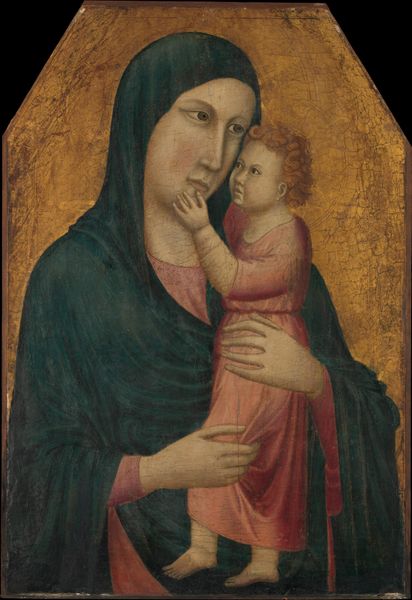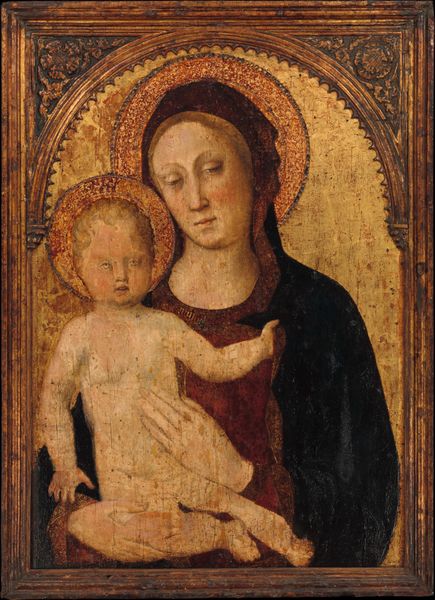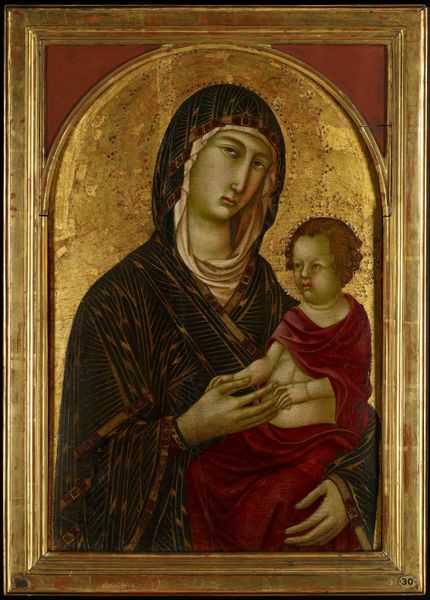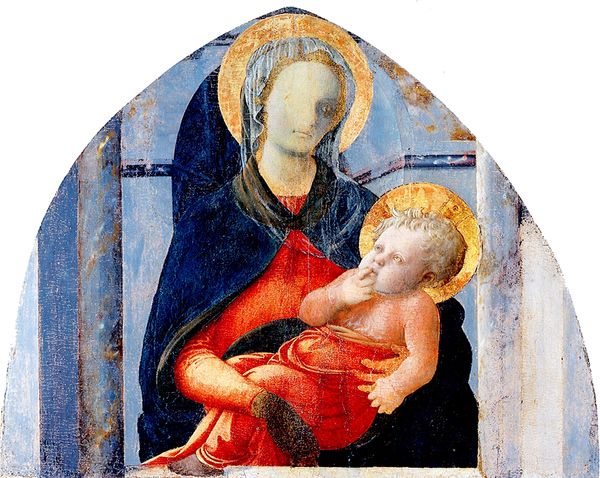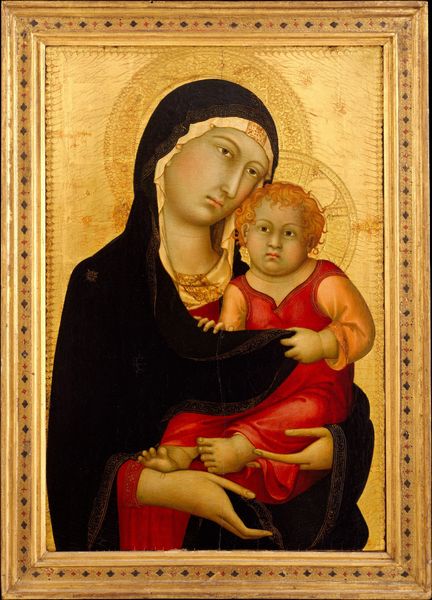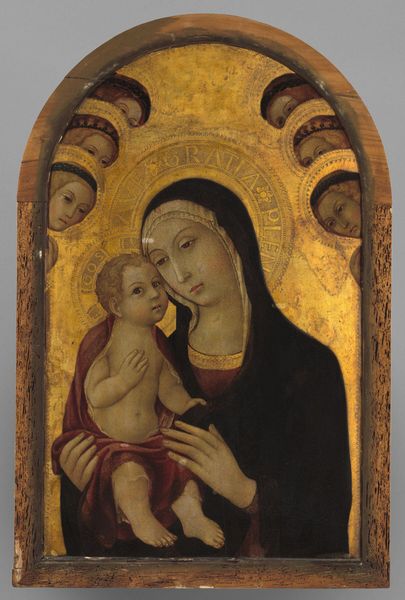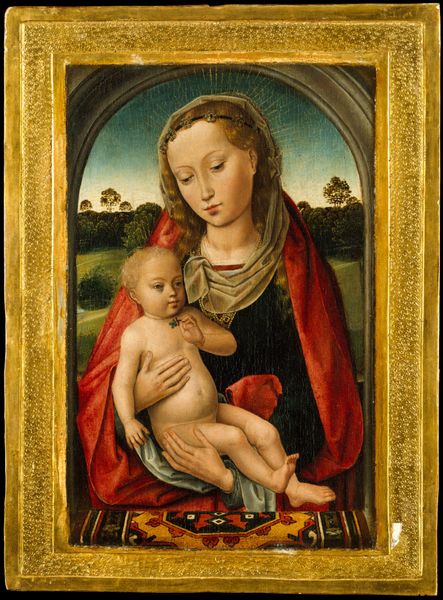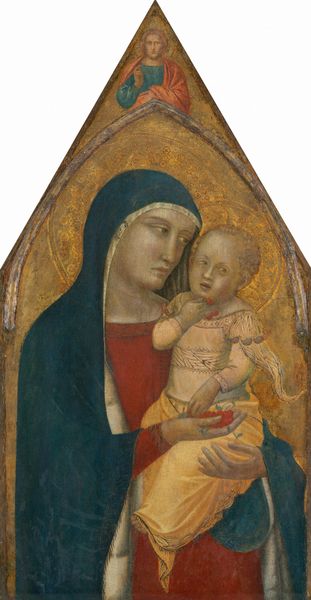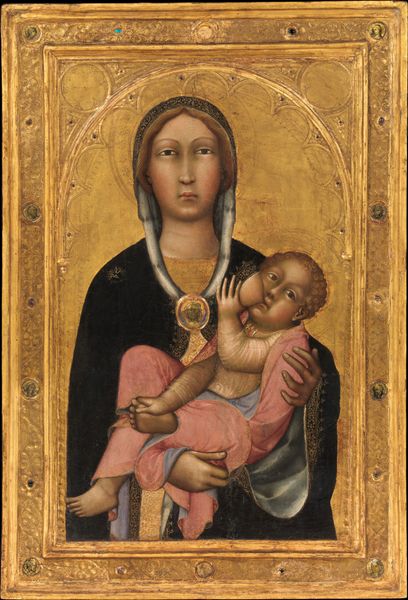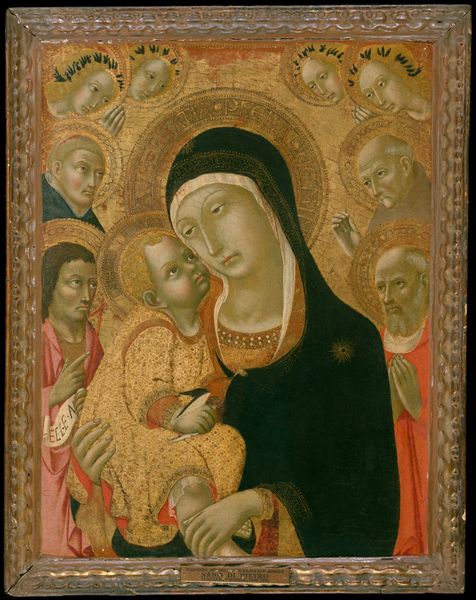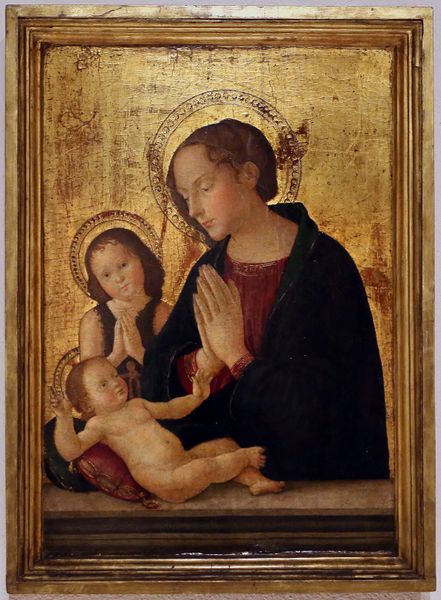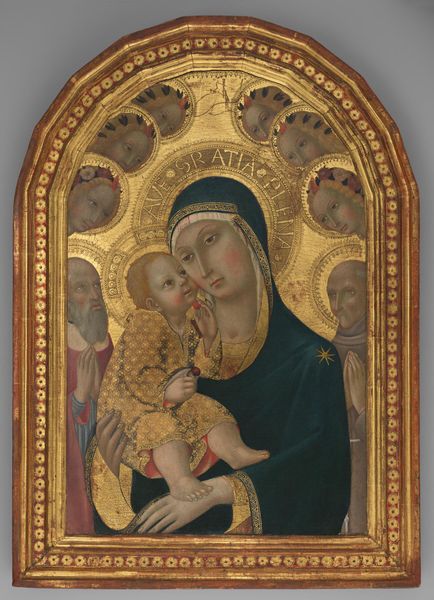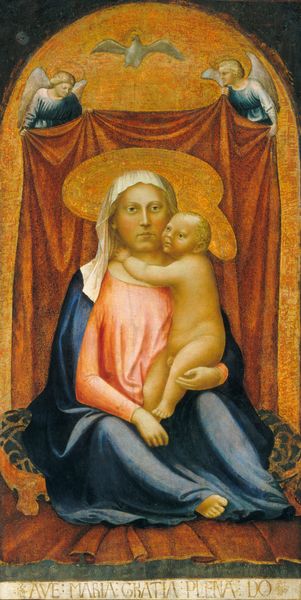
oil-paint
#
portrait
#
oil-paint
#
figuration
#
11_renaissance
#
madonna
#
oil painting
#
child
#
underpainting
#
italian-renaissance
#
portrait art
#
fine art portrait
Dimensions: 17 1/4 x 12 5/8 in. (43.8 x 32.1 cm)
Copyright: Public Domain
Editor: We’re looking at Vincenzo Foppa’s “Madonna and Child,” created sometime between 1475 and 1485 using oil paint. I’m immediately struck by the color palette – this intense red against a somewhat muted background. What stands out to you when you look at this piece? Curator: The composition is rather arresting, wouldn’t you agree? Note the Madonna’s robe. How does the treatment of the drapery affect our perception of space and form? Consider the angularity versus the soft curve of her body; how do they contrast? Editor: It does seem like the folds in her robe are quite sharp, which draws my attention. It almost makes her seem…monumental, even though it's not a particularly large painting. And her face and the child's feel a little…melancholy? Curator: Precisely. The formal elements here -- the line, the light, the use of impasto to create texture -- they construct the mood. Does the luminosity of the halos, offset by the flatness of the backdrop, alter the reading for you? Editor: I think so. It’s like two separate planes. Now that I focus on the background, it doesn’t look atmospheric as I’d expect but more of a backdrop. Is that common for paintings of this time? Curator: What is the effect of using an oil based medium for this piece and can it lend itself to naturalism? Consider, too, what the textural nuances do to communicate the tangible, sensuous quality, as evidenced in both Madonna and Child? The halos and background add what to that consideration? Editor: Thinking about the interplay of the rough, almost fabric-like folds and flat, less natural background certainly make this Madonna appear striking but perhaps less divine. Seeing that contrast makes this artwork much more impactful. Curator: Precisely. Close looking is an active form of interpretation. Form contains all the cues required.
Comments
No comments
Be the first to comment and join the conversation on the ultimate creative platform.
